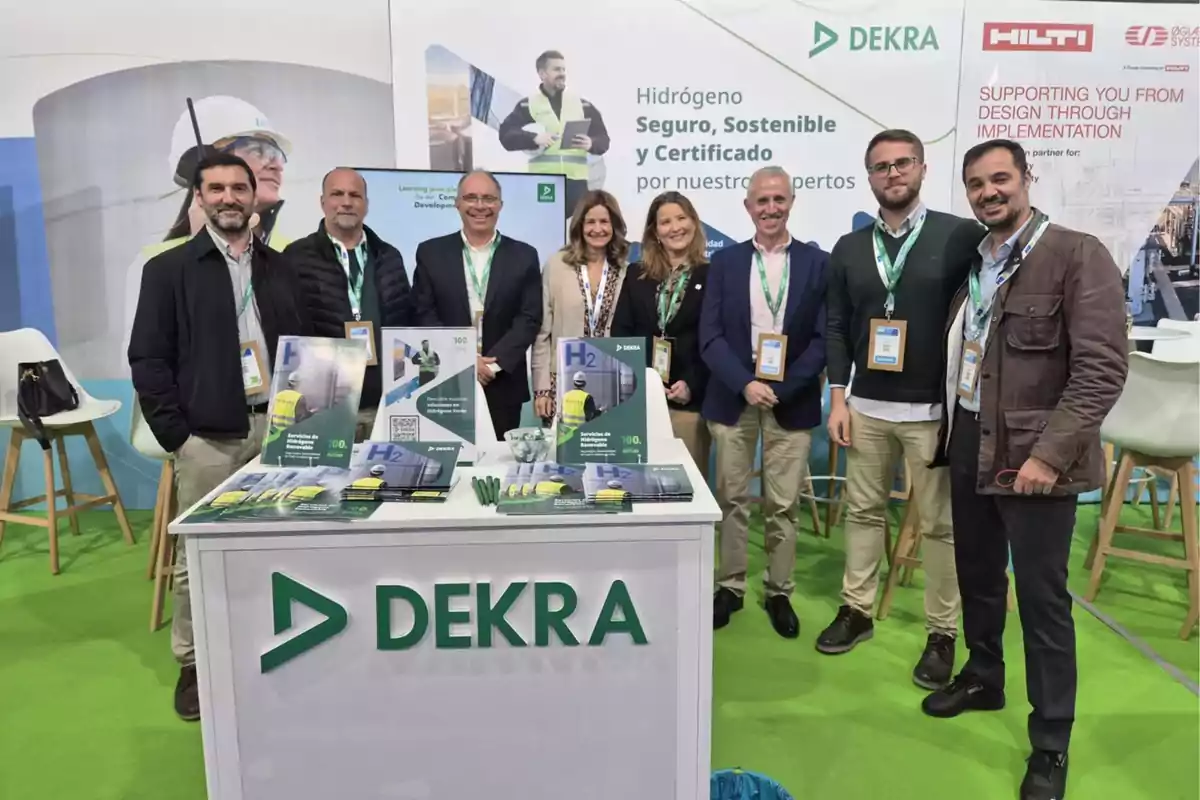
DEKRA at the II National Green Hydrogen Congress
DEKRA has actively participated in the II National Green Hydrogen Congress, held in Huelva from February 4 to 6.
This event, key in the transition to a low-carbon economy, has brought together more than 1,400 participants, 450 companies, 150 accredited journalists, 80 national and international speakers, and representatives from 40 institutions, associations, and hydrogen clusters from Spain, Europe, and Latin America.
Certification, a Key Aspect in the Development of Renewable Hydrogen
One of the central topics of the congress has been the certification of Hydrogen Refueling Stations (HRS). Fernando Rus Herrera, Technical Manager in Safety, Reliability, and Certification at DEKRA, presented the challenges and scenarios these projects face in Europe and Spain.
"The world of hydrogen stations is more regulated than other sectors. One of the main challenges is achieving a common European regulatory framework, such as Regulation (EU) 2023/1804 on alternative fuels infrastructure," explained Fernando Rus.
The Importance of Safety in Hydrogen Stations
Hydrogen is emerging as a key energy vector for sustainable mobility, and refueling stations play an essential role in its adoption. "At DEKRA, we work with companies on the safety of installations and provide advice to ensure these stations meet regulatory and normative requirements," highlighted Fernando Rus.
The Spanish government has set the goal of having a network of 100-150 public hydrogen stations by 2030, with a maximum distance of 155 miles (250 km) between them. Currently, there are 11 active hydrogen stations in Spain, of which two are public and nine are private.
"Not only is specific regulation of hydrogen stations essential, but also the application of standards in their design and construction. Certification ensures quality and safety under European standards recognized worldwide, reducing uncertainties for producers, investors, and consumers," added Fernando Rus.
Safety and Regulation in Hydrogen Supply
Unlike conventional gas stations, hydrogen is sold by kilograms instead of liters and is supplied at high pressure. This requires a tight seal in the connection between the vehicle and the dispenser to prevent leaks. "For this, standards such as ISO 17268 must be met," explained Fernando Rus.
Regarding the taxation of hydrogen, it is currently equated with biogas and natural gas, although future regulation will determine its definitive tax treatment.
DEKRA: Safety and Sustainability Across the Entire Hydrogen Value Chain
DEKRA ensures safety and efficiency in hydrogen projects, from production to final use. We offer a wide range of services to reduce risks and accelerate the implementation of safe and sustainable solutions:
• Comprehensive management of processes, safety, inspection, testing, and training.
• Experts in hydrogen regulation to ensure compliance and minimize risks.
• Independent and trusted partner in the energy transition.
• Global network with local expertise to offer customized solutions.
With DEKRA's knowledge and experience, they help manufacturers and users ensure the success of their hydrogen projects, guaranteeing safety, regulatory compliance, and operational efficiency.
More posts: